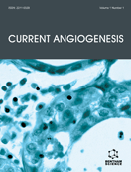Abstract
Aggressive tumor cells can obtain the ability to form vascular-like structures that may contribute to blood circulation. This process is referred to as vasculogenic mimicry (VM). The occurrence of VM networks is associated with increased tumor malignancy and poor prognosis. In addition, this process is speculated to contribute to resistance to angiostatic therapy. Various signaling molecules involved in the formation of vasculogenic structures have been identified and phosphorylation events have been shown to be required for VM network formation. Here, we show by microarray analysis that highly aggressive VM positive (VM+) Ewing sarcoma cells show increased expression of c-Kit tyrosine kinase. This result urged us to investigate the effect of the c-Kit targeting compound imatinib (Gleevec®, STI571) on the process of VM. It was found that treatment of VM+ tumor cells with imatinib reduced VM network formation in 3- dimensional cultures on Matrigel and collagen. This diminished capacity to form networks was associated with reduced expression of VE-cadherin and MMP-2, proteins described to be essential for VM, and reduced phosphorylation of EphA2. The data presented here demonstrate the potential of clinically used imatinib as a possible drug to target VM.
Keywords: Imatinib, tumor cell plasticity, tyrosine kinase, vasculogenesis, vasculogenic mimicry
 19
19

